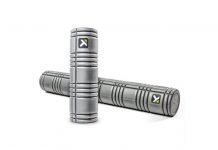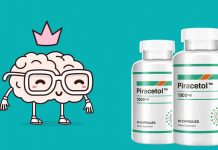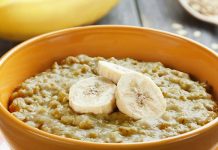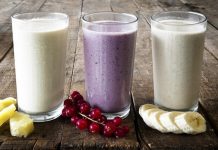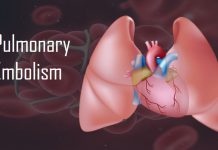
You’ve probably heard the term “beer belly”. It makes reference to the fat stomach someone develops after drinking too much over a long period. In most contexts, it is meant as a joke, but the problem is real. I should know. I was an alcoholic for most of my life.
I first started drinking when I was only a child, and it went on into my early adulthood. Things got so bad I had to go to rehab. I got there thinking it was going to be the worst experience of my life. But it wasn’t. It was the best thing that could’ve happened to me. When I got there I had a number of health problems. They ranged from high blood pressure to gastritis, and, yes, you guessed right, I was overweight.
I don’t have a family history of obesity. Up until I started abusing alcohol I had always been slim. In rehab, I found out that alcohol, combined with a series of bad habits, was what caused that excess weight. When I got sober I dropped those pounds in no time.
Being overweight can lead to many health problems, such as diabetes, heart disease, and cancer. Drinking alcohol, even if you’re not abusing it, can contribute to excess weight gain. Today I would like to tell you about 5 ways alcohol is stopping you from reaching your weight-loss goals.
No More “Empty Calories”
Alcohol is filled with calories that don’t have any nutritional value. These are often referred to as empty calories. Alcohol is made by fermenting and distilling starch and sugar. That is why it is so high in calories. According to Drinkaware, alcohol contains seven calories a gram, almost the same as pure fat. A pint of beer contains the same calories as a slice of pizza. A glass of wine has the same calories as a cookie. These extra calories can quickly add up and contribute to weight gain. Quitting alcohol means that you stop consuming those empty, extra calories.
Staying Hydrated
Alcohol is a diuretic, which it means it makes you pee more than usual. When fluids leave your body so quickly, you get dehydrated. And all the minerals your body needs get flushed out.
Believe it or not, constantly dehydrating your body with alcohol can be making you gain weight. According to studies, when cells are dehydrated they become drained of energy. So they send out signals to the brain to ask for hydration. The problem is we often confuse these signals with hunger. Which means we eat more when what we actually need is a big glass of water.
While staying away from alcohol isn’t enough to keep your body hydrated, it definitely helps. You should always drink a lot of fluids during the day. Especially when you’re practicing sports or when the weather is hot.
Avoiding Bad Habits
If you’ve ever gotten drunk you know that alcohol releases your inhibitions. This means that it makes you do things you wouldn’t do while sober. So, even if you keep a strict diet, chances are you’ll break it after a night out. We have all ended up at McDonald’s eating a burger with fries and coke at 4 in the morning. Add that to the excess calories you get from alcohol, and it’s only logical to be gaining extra weight.
In addition to this, alcohol leads to another bad habit: sedentarism. The last thing you want to do after a night out drinking is exercising. Your body is dehydrated, you feel terrible, so raincheck the gym. And you do the same thing next week, and it goes on and on. Quitting alcohol prevents you from falling into these bad habits so you can achieve your weight-loss goals.
Better Sleep
Some people think that having a drink before going to bed is the solution to their sleep problems. They couldn’t be more wrong. While alcohol can make you fall asleep easier, it prevents quality sleep. When you go to bed drunk you might wake up feeling as if you hadn’t rested at all. This is because alcohol disrupts your sleep patterns and blocks REM sleep. Sleeping is supposed to restore and recharge your body. Drinking prevents that from happening.
Sleeping poorly or not enough can prevent weight loss. Lack of quality sleep slows down your metabolism and increases appetite. It can also make your body store calories as fat, which will show especially in your abdominal area. The best way to lose that muffin top might be to get good sleep. And if you want to do that, alcohol is out of the question.
Healthy Body
Alcohol can have an irritating effect on the lining of the stomach and gradually weaken the kidneys and liver. This can lead to serious health problems, sometimes even death. Given that it weakens your stomach, food stops being digested as efficiently. This ultimately interferes with a healthy metabolism and the weight loss process.
In addition to this, the liver is crucial if you want to maintain a healthy body composition. It is the organ that processes toxins and breaks down fats for fuel. But it is also the organ that suffers the most damage from alcohol consumption. Eliminating alcohol means a healthy liver, kidneys, and stomach. And a healthy body, overall.
In order to achieve your weight-loss goals, you need to have healthy habits. This obviously includes limiting your alcohol intake, but it doesn’t stop there. You also need to eat a balanced diet and exercise regularly.
Alcohol addiction not only causes weight-gain. It can lead to many other health problems. If you think you have a problem with alcohol, it is best to get professional help as soon as possible. It is never too late to change your life. Getting sober not only helped me achieve a healthy body image. It helped me become a better, happier person.
Do you have any questions about alcohol and weight-loss? If you want to add or suggest something, please leave a comment below.
Read our full review about one of the best nootropic supplements: Mind Lab Pro


